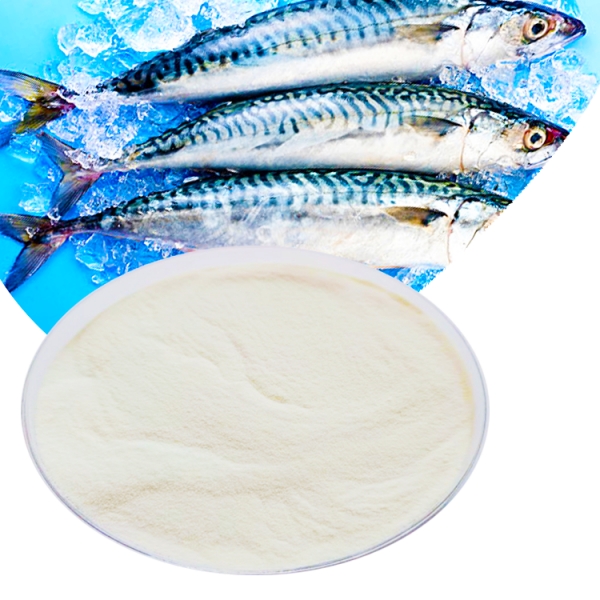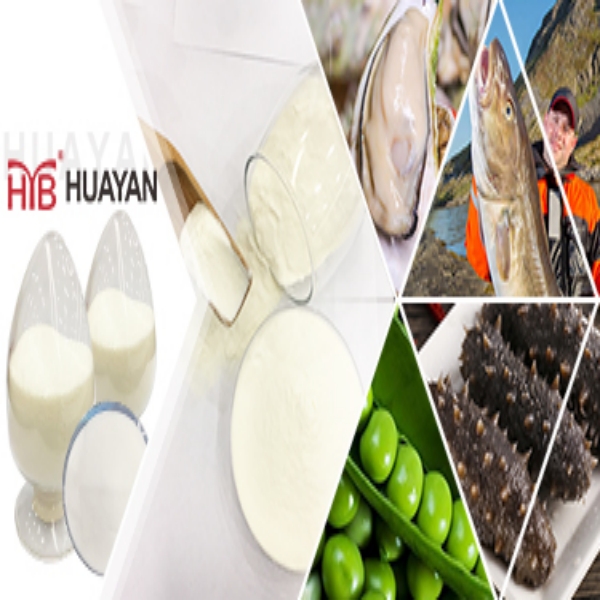Which is better: marine collagen or plant collagen?
In pursuit of youthful-looking skin and overall wellness, collagen has become a buzzword in the beauty and wellness industry. With the rise of various collagen supplements, two main sources have garnered significant attention: marine collagen and plant-based collagen. This article will delve into the differences between these two types of collagen, focusing on marine collagen peptides, marine collagen supplements for anti-aging and radiant skin, and deep-sea marine collagen. The question is: Which is better?
Marine Collagen: A Gift from the Ocean
Marine collagen is derived from fish, particularly the skin and scales of deep-sea fish. It is known for its high bioavailability, meaning it is easily absorbed by the body. Marine collagen peptides are short-chain amino acids produced by hydrolyzing collagen, making them more easily absorbed by the body.
Benefits of Marine Collagen
1. Anti-aging: Marine collagen supplements are often known for their anti-aging benefits. Studies have shown that marine collagen can improve skin elasticity, moisturization, and overall appearance. The amino acids in marine collagen, particularly glycine and proline, play a crucial role in skin health.
2. Radiant Skin: Regular intake of marine collagen will result in more radiant skin. It helps reduce fine lines and wrinkles, revealing a youthful glow.
3. Joint Health: In addition to its skin benefits, marine collagen is also believed to promote joint health. It helps reduce inflammation and improve joint mobility, making it a favorite among athletes and exercise enthusiasts.
Plant Collagen: A Vegan Alternative
Plant collagen, on the other hand, isn’t found in its original form. Instead, it’s made up of ingredients that boost the body’s natural collagen production. Common plant collagen include soybean peptide, pea peptide, corn oligopeptide, walnut peptide, etc., which are rich in vitamins and minerals that aid in collagen synthesis, such as vitamin C, zinc, and amino acids.
Benefits of Plant Collagen
1. Vegan Friendly: Plant collagen is an excellent choice for those pursuing a vegan or vegetarian lifestyle. It allows people to reap the benefits of collagen without consuming animal products.
2. Rich in Antioxidants: Many plant-based collagen supplements are rich in antioxidants, which help fight oxidative stress and protect the skin from environmental damage.
3. Supports Overall Health: Plant-based collagen sources often offer additional health benefits, such as improved digestion and enhanced immune function, thanks to their nutrient-rich properties.
4. Boosts Natural Collagen Production: While plant collagen does not contain collagen itself, it provides the nutrients needed to stimulate the body’s own collagen production, making it a viable option for those looking to maintain healthy skin.
Comparison of Marine Collagen and Plant Collagen
When choosing between marine collagen and plant collagen, there are several factors to consider:
1. Bioavailability
Marine collagen peptides are known for their high bioavailability, meaning they are easily absorbed and used by the body. This can lead to faster, more noticeable results, especially for skin health. In contrast, plant-based collagen can take longer to work because it relies on the body’s ability to synthesize collagen from the nutrients provided.
2. Nutritional Profile
Marine collagen is rich in specific amino acids that are crucial for collagen synthesis, particularly glycine, proline, and hydroxyproline. These amino acids are found in lower concentrations in plant-based sources. However, plant-based collagen often contains a wider range of vitamins and minerals to help maintain the overall health and vitality of the skin.
3. Ethical Considerations
For those concerned about animal welfare and sustainability, plant-based collagen is the clear choice. It’s derived from plants and contains no animal products, making it suitable for vegans and vegetarians. Marine collagen, while often sustainably sourced, still requires the use of fish, which may not align with everyone’s ethical standards.
4. Skin Benefits
Both marine collagen and plant collagen can promote skin health, but they work in different ways. Marine collagen works more directly, providing the body with the actual building blocks of collagen. In contrast, plant collagen supports the body’s natural processes and may take longer to produce noticeable results.
5. Joint Health
Marine collagen has been shown to provide significant benefits for joint health, making it a popular choice for athletes and those with joint issues. Plant-based collagen may not provide the same level of joint health support, but it can still contribute to overall well-being.
Conclusion: Which is better?
The question of whether marine collagen or plant-based collagen is better comes down to personal needs and preferences. If you’re looking for a supplement that can quickly improve skin and joint health, marine collagen peptides may be ideal. On the other hand, if you follow a vegan lifestyle or are concerned about sustainability, plant-based collagen is an excellent choice to boost your body’s natural collagen production.
Including any type of collagen in your daily routine can benefit skin health, joint support, and overall well-being. When choosing a collagen protein, it’s important to consider your dietary preferences, ethical values, and specific health goals. As with any supplement, consulting a healthcare professional can help you find the best option for your individual needs.
Ultimately, marine collagen and plant collagen each have their own unique benefits, and the best choice is the one that aligns with your lifestyle and health goals. Whether you choose deep sea marine collagen or plant collagen, the key is to prioritize your skin and overall health in your wellness journey.
Post time: Jul-30-2025






